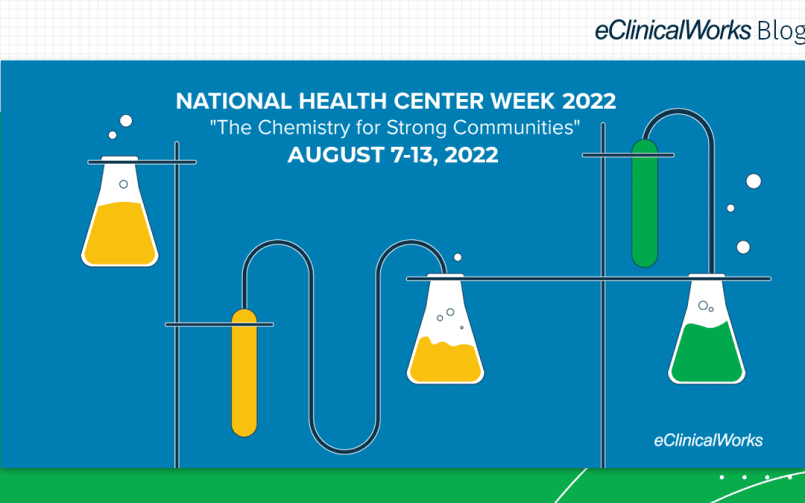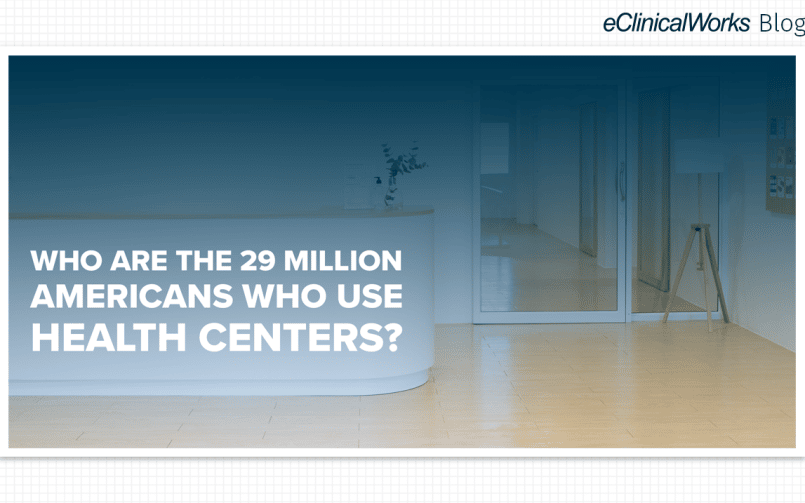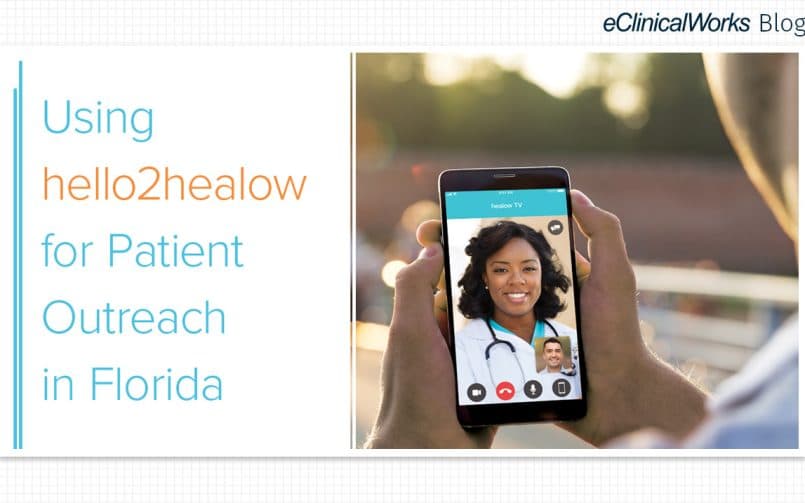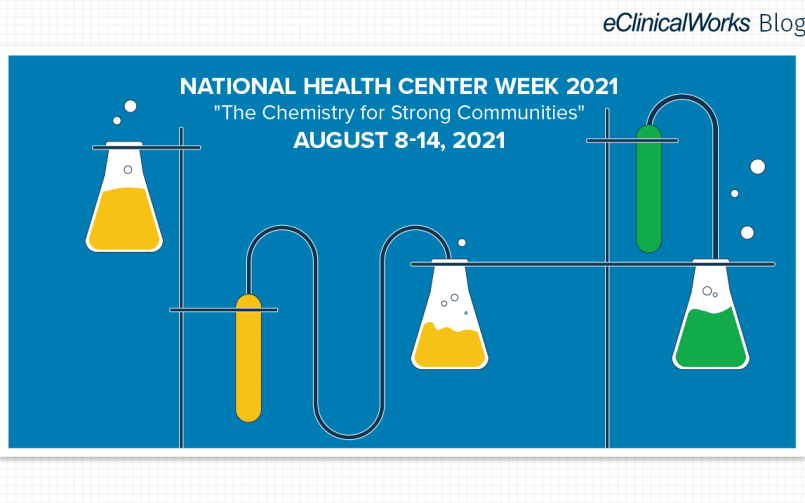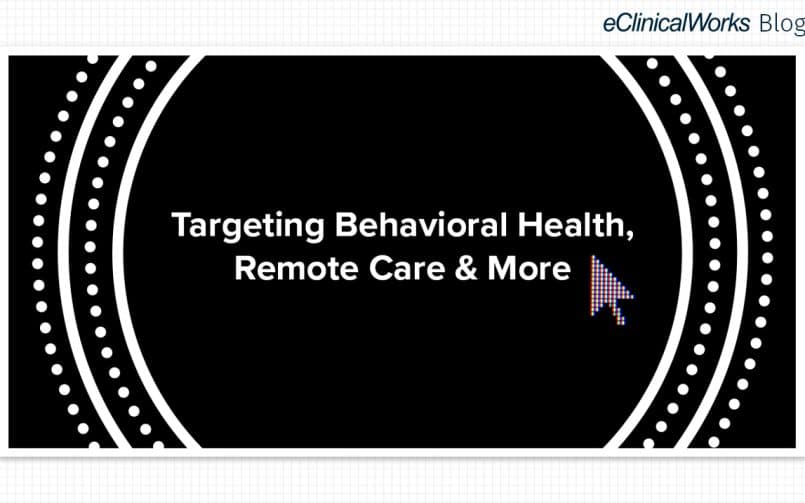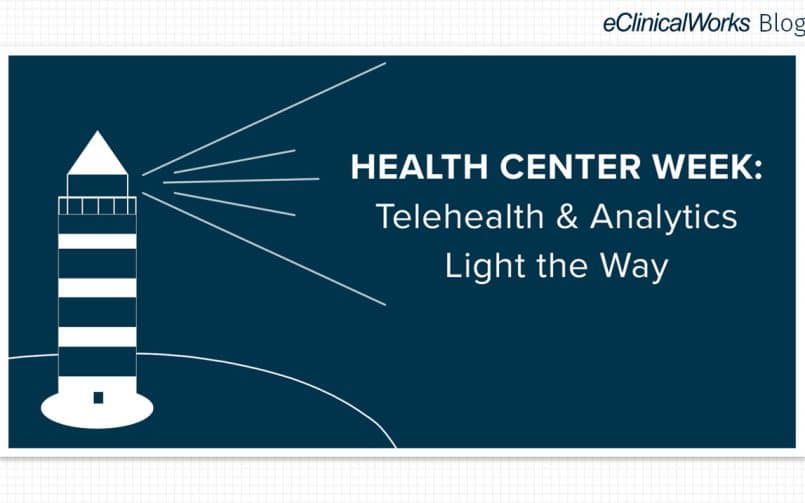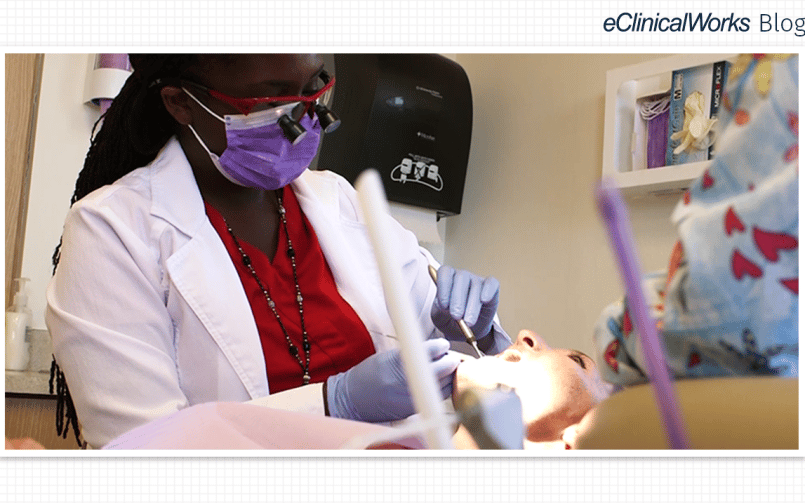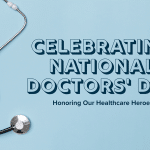2017 National Health Center Week
- 14 August 2017
- Blog
eClinicalWorks
Celebrating the care all Americans deserve
For most Americans, getting to the doctor is a fairly routine activity. We may not like taking the time to book and keep an appointment, but most of us do not worry that the services will be there when we need them.
But for tens of millions of Americans, healthcare — and healthcare insurance — are anything but a given. In fact, for more than 24 million of us, the nation’s thousands of health centers are there to provide the quality healthcare services that all Americans need and deserve, but which some might not otherwise be able to find or afford.
Every August, the National Association of Community Health Centers sponsors National Health Center Week, a dedicated week that aims to inform the American public, state and federal policymakers, and the media about the nation’s 1,200+ community, migrant and homeless health centers. This year’s theme is “Celebrating America’s Health Centers: The Key to Healthier Communities.” Follow along on social media using #NHCW17.
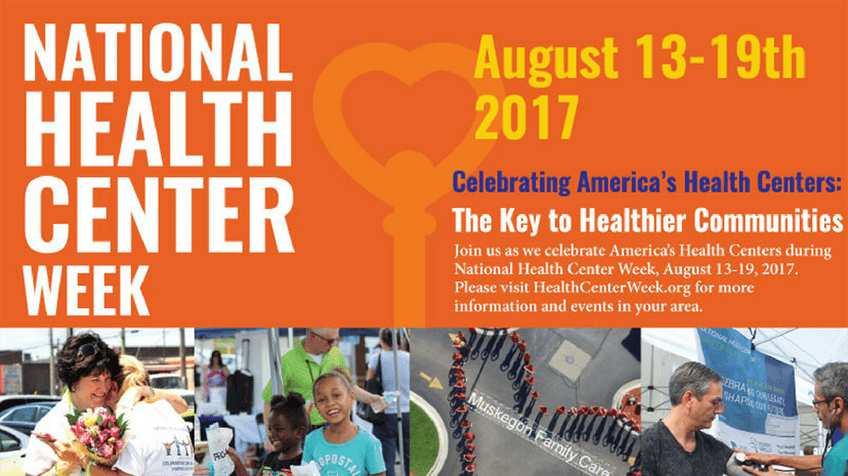
What health centers provide
At more than 9,000 provider sites — across all 50 states, the District of Columbia, Puerto Rico, and U.S. territories — health centers are there for many of the nation’s economically disadvantaged individuals and families.
Today, one in every 15 people living in the United States depends on services provided by health centers, which are community-based, patient-directed organizations delivering coordinated and comprehensive primary and preventive care services.
What kind of care do health centers deliver? The same care that can be found at any comprehensive medical facility. Often, of course, providers are engaged in routine wellness exams, or handling the usual urgent care problems, from bumps and bruises, to coughs and colds. Dental services — so often treated as a separate speciality — are an integral part of the holistic approach that health centers take to community health.
There are days when doctors and nurse practitioners will see more serious cases, of infectious disease, or the effects of poorly controlled diabetes, heart disease, or other chronic conditions. When necessary, they can draw upon colleagues with specialized skills, or make referrals to other medical facilities in their community.
Health centers provide lab services and diagnostic imaging, along with OB/GYN services and pediatrics to many of the nation’s poorest women and families. There are screenings for mammograms and colonoscopies. And behavioral and mental health services also play an important part in helping promote community and family health.
In short, America’s health centers provide the same broad range of services that any other medical facility provides. They simply do all that in communities that often have fewer resources, steeper challenges, and sometimes lack the political clout to claim their just share of the nation’s healthcare resources.
Facing barriers and realities
In some areas, economic, geographic or cultural barriers limit patients’ access to affordable healthcare services. Health centers aim to mitigate this challenge by providing the most vulnerable individuals and families, including veterans, agricultural workers, people experiencing homelessness and residents of public housing, with the high-quality care they deserve.
These centers had very modest beginnings more than 50 years ago. The nation’s first publicly run health centers were created in 1965 as part of President Lyndon Johnson’s War on Poverty. Over the years, the number and variety of health centers — and various pieces of legislation to support their work — grew to create the network of centers available today, which are as varied as the communities and peoples they serve.
But one consistent theme in studies of the nation’s health centers is their effectiveness. A June 2013 study by the Kaiser Family Foundation, for example, showed relatively high performance when compared to other providers on a broad index of quality measures. In fact, more than 12% of health centers met the KFF definition for high performance, placing them ahead of three-quarters of all Medicaid managed care organizations. On measures such as diabetes control, health centers were a standout, with a control rate of 79% compared to a national benchmark of just 62%.
Health centers did not excel in every measure, but those ranked as lower performers turn out to be clustered in communities within states — including Louisiana, Texas, and Florida — where there are significantly higher rates of uninsured people, and extremely high rates of homelessness relative to other parts of the country.
Making a difference
Neither healthcare providers nor health center advocates use those realities to excuse what shortcomings in care may exist. But the socioeconomic realities that many community health centers face do help explain the results that are sometimes seen, and serve to underscore just how vital the service they provide can be in places where few other providers are willing to invest time and money.
eClinicalWorks is proud to work with all kinds of health centers. We know that the products and services we have to offer are of value to communities of all types, but can make a particularly dramatic impact in those communities that are traditionally underserved.
And our support of health centers goes far beyond National Health Center week. In fact, over 700 health centers nationwide utilize eClinicalWorks technologies, and nine of those centers have been awarded the HIMSS Davies Award for outstanding achievement in substantially improving patient outcomes and value.
We truly pride ourselves in providing evidence-based care to medically underserved populations. With our multi-specialty database, we offer integrated solutions to health centers, including:
- Dental
- OB/GYN
- Vision Care
- Behavioral Health
- Private Cloud
- Patient Engagement solutions
We are pleased to be a part of celebrating the innovative services and programs health centers are providing nationwide.




